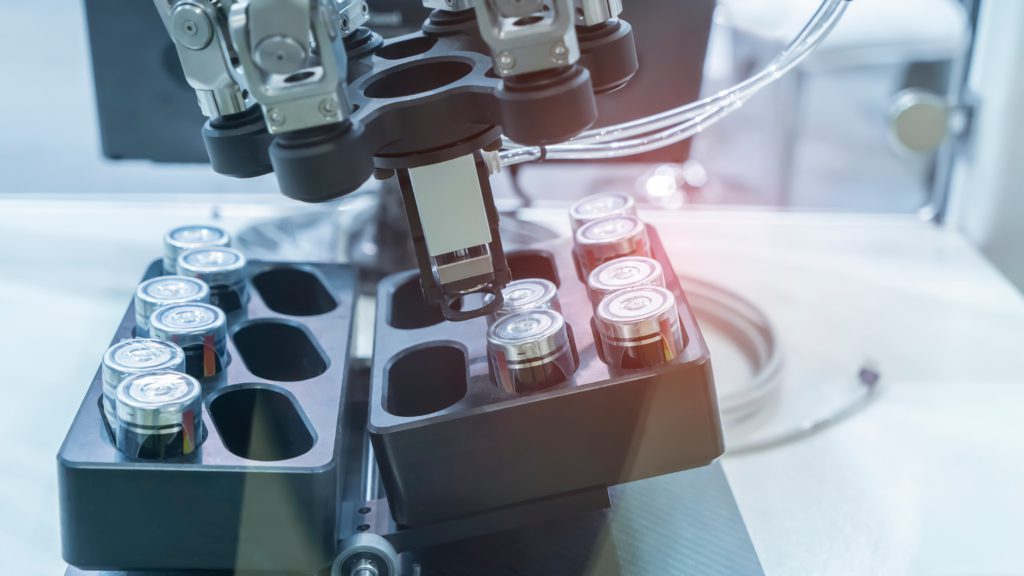Column: Europe urgently needs an accelerator in the critical metals race

(The opinions expressed here are those of the author, Andy Home, a columnist for Reuters.)
Europe is running out of time to secure the metals it needs to power the energy transition.
The region’s import dependency on enabling metals was already high and has turned critical since Russia’s invasion of Ukraine.
Russia has historically been a major supplier of aluminum nickel and platinum to the European market, while the European Union had high hopes of folding Ukraine into its battery sector build-out.
Even worse, what Russia calls its “special operation” has sent European power prices soaring, forcing energy-intensive aluminum and zinc smelters to close or reduce output.
Read more: How far are we from phasing out coal?
The Green Deal will play a crucial role in reducing Europe’s fossil fuel dependency but “without a more strategic approach to developing primary and secondary raw material capacities in Europe there will be no green and digital transition,” according to Thierry Breton, EU Commissioner for the Internal Market. Watch here.
“The key question is speed,” according to German MEP Hildegard Bentele, who authored a parliamentary report on critical minerals last year.
The European Union struggles with speed, having to coordinate legislation across 27 members states, but an accelerator may be coming.
Faster-than-expected demand, lagging supply
The scale of the challenge was laid out in a report commissioned by industry group Eurometaux.
“The global energy transition is progressing faster than the mining project pipeline, with copper, cobalt, lithium, nickel, and rare earths all at risk of a disruptive demand pull between now and 2035,” said the study by Belgium’s KU Leuven University.
Europe’s import dependency is almost total for lithium and rare earths and thanks to high power prices is rising fast in both aluminium and zinc sectors.
More recycling is obviously part of the answer but availability of secondary materials is dependent on materials life-cycle, which can be up to 40 years for copper, and technical advances in processing end-of-life lithium-ion batteries.
“Recycling could be Europe’s major supply source for most transition metals”, but only after 2040, according to the study.
Until then the Green Deal is still going to need new mines and more refining capacity.
Preferably in Europe.
The problem is that a new mine needs 15 years to move through the planning, permitting and construction stages, Mikael Staffas, Eurometaux president and CEO of Swedish metals group Boliden, told the panel discussion accompanying the release of the report.
Given the collective aim is to hit carbon neutrality by 2050, such extended time-lines mean “we need to work on it now”.
However, existing EU regulations have also created multiple unintended hindrances to getting new mine projects off the ground. Without changes to the Water Directive, for example, there “will be no more mining in Europe,” Staffas said.
Imports pivot
Europe’s race to achieve what it calls “strategic autonomy” in critical minerals and metals is also being massively complicated by disruption to global supply chains.
While Russian metals have not yet been hit by sanctions, self-sanctioning is already affecting flows to Europe. Russia itself may yet weaponise metals in the same way it has gas supplies to Europe.
The European Union also got a painful reminder of its Chinese metals dependency last year, when power-related cutbacks in Shaanxi province caused a magnesium crunch for Europe’s factories.
Policymakers are having to adjust quickly to the fact that two major suppliers – Russia and China – will “no longer be providing,” said Kerstin Jorna, director general of the Commission’s GROW department.
That’s lent added urgency to pivoting away from both countries and the EU is already working with friendlier nations such as the United States, Canada and Japan with a view to making coordinated “better offers” for new mine acquisition and development, she said.
The accelerator
Europe’s mineral ambitions risk being frustrated by both a lack of coherent policy framework to stimulate domestic supply and a rapidly-changing global landscape where everyone is trying to secure enough electric vehicle metals such as lithium, cobalt and nickel.
The United States has invoked the Defense Production Act to jump-start its own critical minerals supply chains and China’s government has exhorted its battery metal producers to maximise output and development plans.
“Europe should learn from that” and use its diplomatic muscle to secure critical mineral supplies “now,” said Julia Poliscanova, senior director at clean energy campaign group Transport and Environment.
She called for the creation of a European strategic minerals agency similar to Euroatom in the nuclear materials sector.
Something along those lines may be on its way.
Asked whether the Commission was contemplating a minerals follow-up to its Chip Act, Jorna told the panel that “it’s something we’re working on”.
The EU Chip Act, unveiled in February of this year, is a comprehensive attempt to reduce Europe’s dependency on overseas suppliers of semiconductors.
It includes financing, easier subsidy investment thresholds and coordination mechanisms across member states “for monitoring the supply of semiconductors, estimating demand and anticipating the shortages.”
Most importantly of all, it’s an effective way of signalling to every EU member the strategic significance of chips and semiconductors.
Europe’s struggling metals sector desperately needs similar messaging and a way of punching through the tangle of Commission and national regulations that is actively impeding more investment in the metals sector.
A raw materials act (title to be confirmed) is coming “soon”, according to Jorna.
It needs to. The faster Europe can go green, the faster it can reduce its Russian oil dependence.
As Bentele summed up the dilemma, “we cannot have war in Europe and miss the Green Deal objectives.”
(Editing by David Evans)
{{ commodity.name }}
{{ post.title }}
{{ post.date }}




Comments